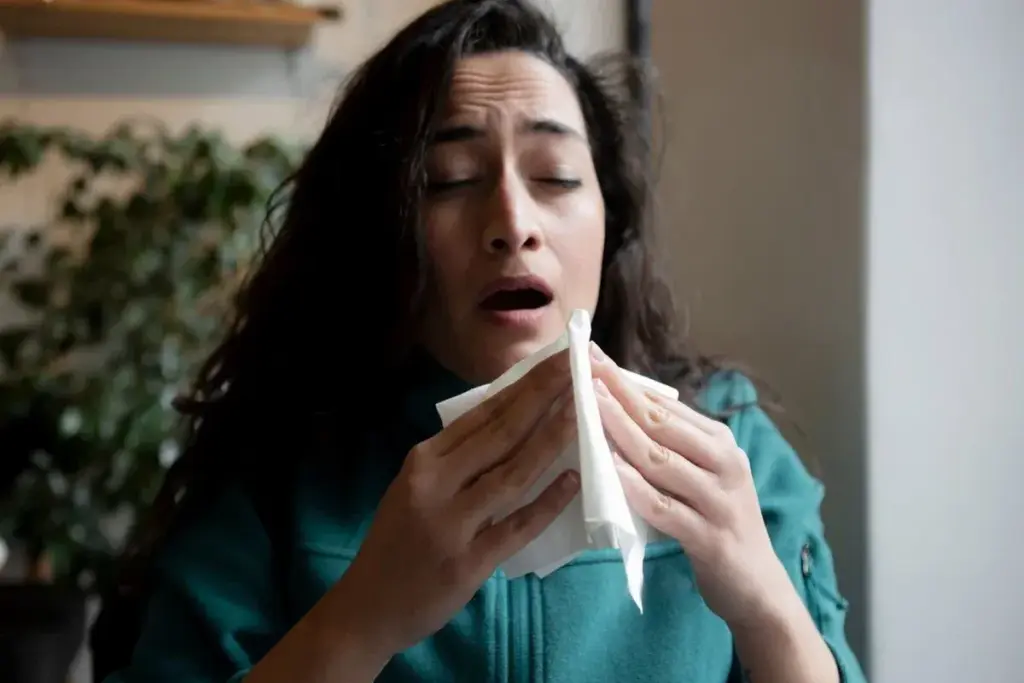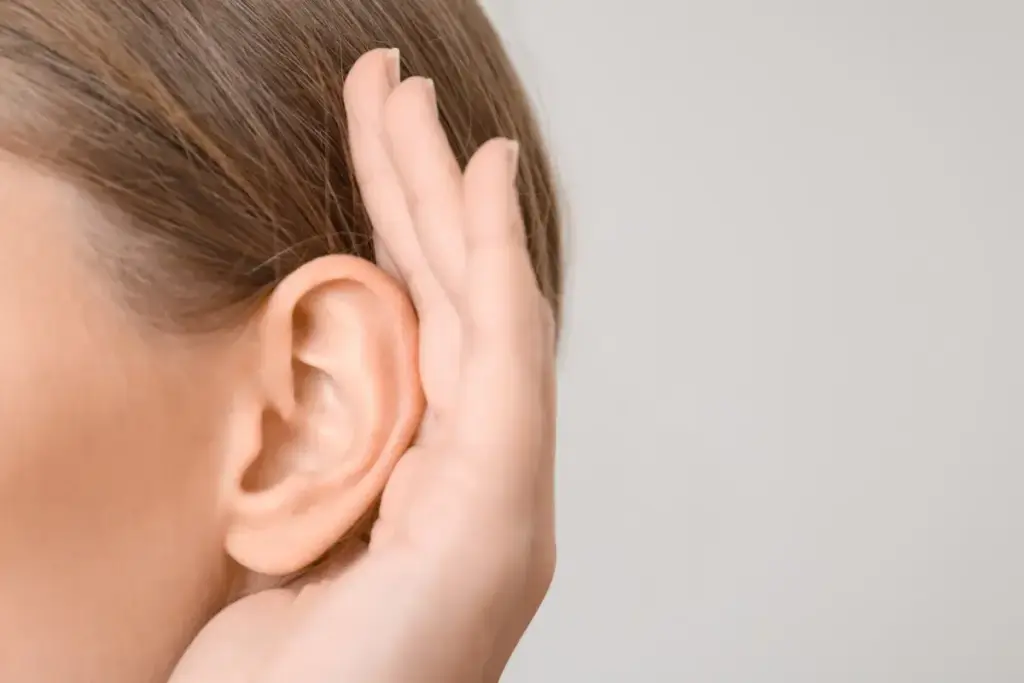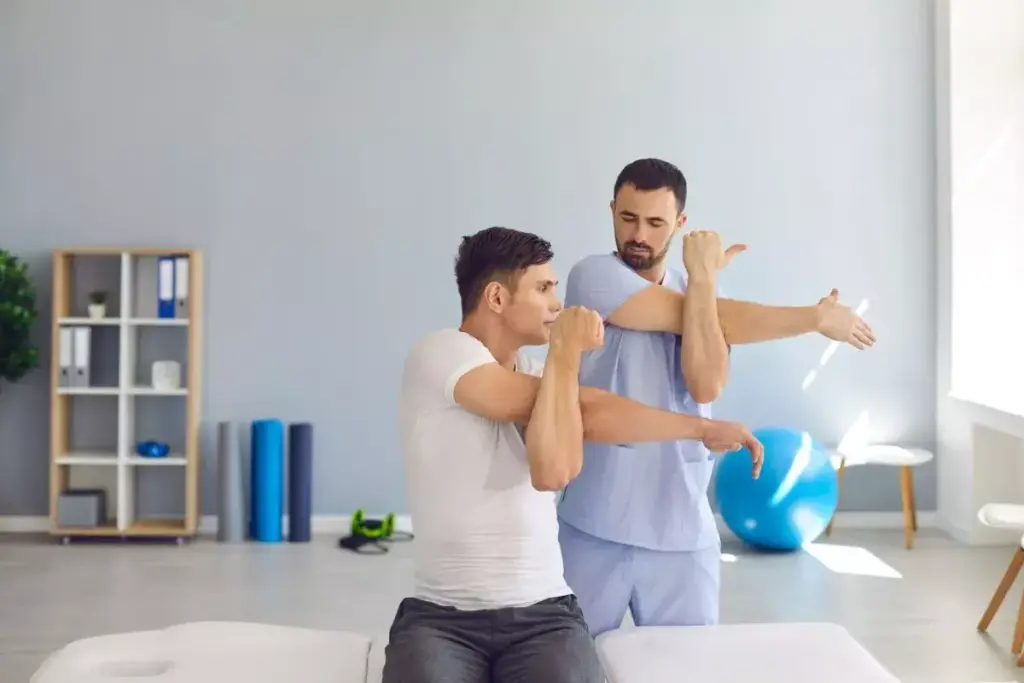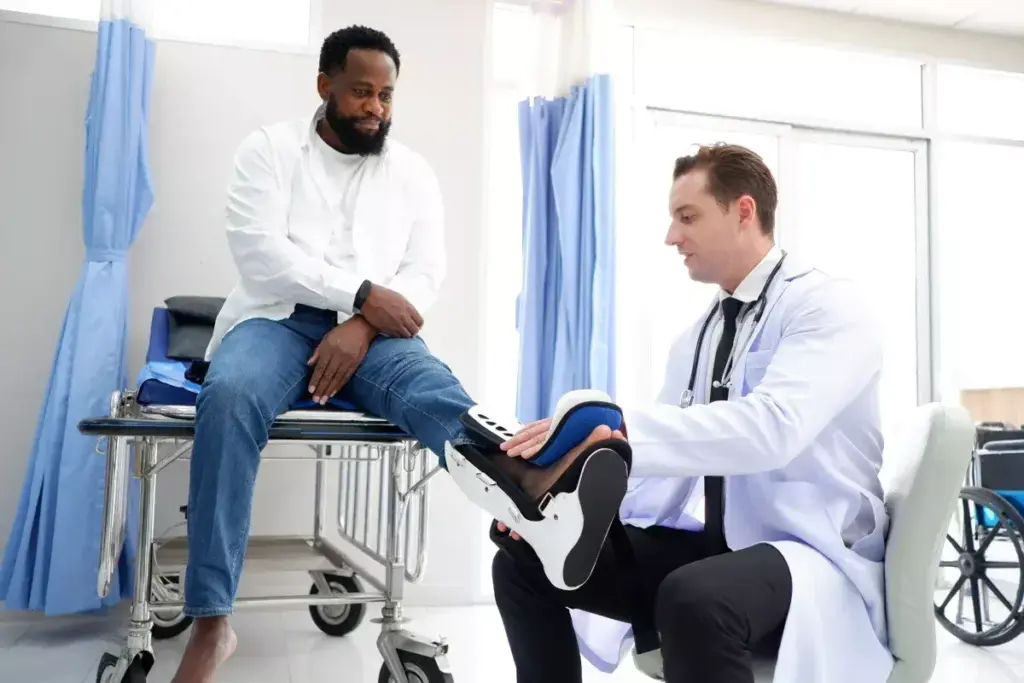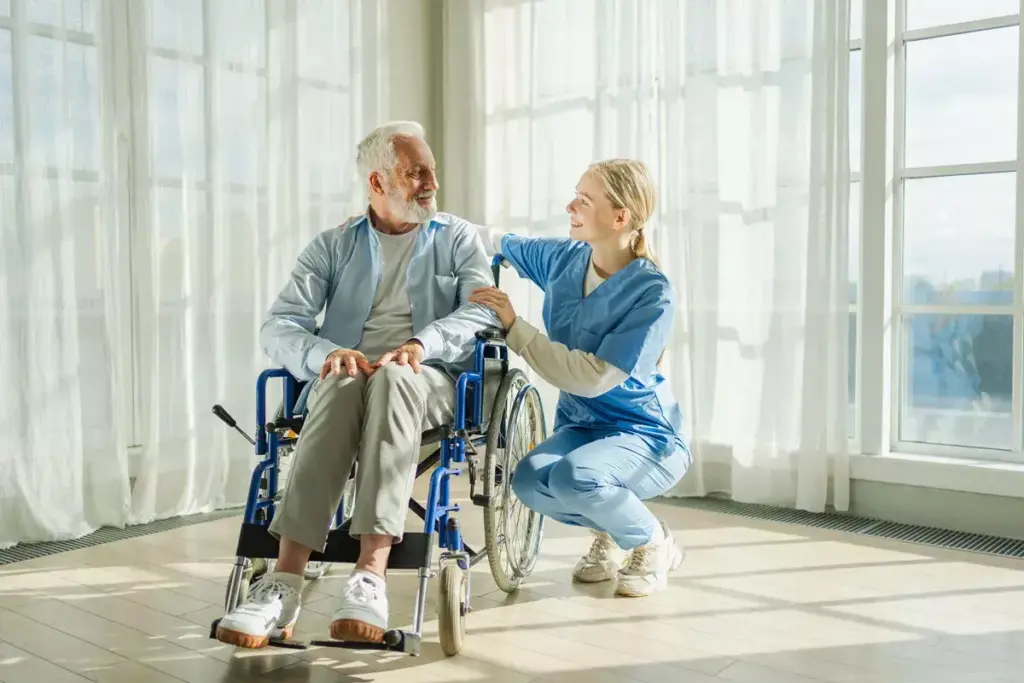Chemotherapy is a strong treatment that can save lives. It works by destroying cancer cells. But, it can also harm healthy cells, posing risks to those around it. Many patients ask, “What can you not do while on chemo? since lifestyle choices can affect both safety and treatment success.
It’s key to know the restrictions during chemotherapy to stay safe. Some foods, activities, and substances can harm your treatment. So, it’s important to know what to avoid.
Key Takeaways
- Avoid certain foods that can interact with chemotherapy
- Be cautious with substances like alcohol during treatment
- Understand the importance of chemotherapy precautions
- Know the things not to do while on chemotherapy
- Follow a safe recovery plan to minimize risks
Understanding Chemotherapy and Its Effects on the Body

It’s important for patients to know how chemotherapy works and its side effects. Chemotherapy uses strong medicines to kill cancer cells all over the body.
How Chemotherapy Works
Chemotherapy targets cells that grow fast, like cancer cells. It stops them from growing and multiplying. This treatment can be given in different ways, like through veins, pills, or shots. Knowing how it works helps patients understand why sticking to their treatment is key.
Common Side Effects of Chemotherapy
Chemotherapy can cause many side effects because it affects both cancer cells and healthy cells. Common issues include feeling very tired, nausea, vomiting, hair loss, and a higher chance of getting infections. These happen because chemotherapy also impacts cells that grow fast, like in the bone marrow, stomach, and hair follicles.
Why Restrictions Are Necessary During Treatment
During chemotherapy, some rules are in place to keep patients safe and manage side effects. This includes eating differently, avoiding some activities, and being careful with medicines and supplements. By following these rules, patients can lower their risk of bad reactions and help their treatment work better.
Can You Drink Chemo? Alcohol and Chemotherapy
Many chemotherapy patients wonder if they can drink alcohol during treatment. The relationship between alcohol and chemotherapy is complex. It’s important for patients to know the possible risks.
How Alcohol Affects Chemotherapy Medications
Alcohol can mess with how well some chemotherapy drugs work. It can also make these drugs more toxic. Always talk to your healthcare team before drinking alcohol during treatment. Mixing alcohol with some chemotherapy drugs can cause bad side effects like nausea and fatigue.
Risks of Combining Alcohol with Different Chemo Drugs
Alcohol’s effect on chemotherapy drugs varies. Some drugs might not work as well or could harm the liver when mixed with alcohol. It’s important to know the specific risks for your treatment.
How Long After Chemotherapy Can You Drink Alcohol
When it’s safe to drink alcohol after chemotherapy depends on the treatment and your health. Usually, it’s best to wait until treatment is over and your body has healed. Always check with your oncologist about drinking alcohol.
Guidelines for Wine, Beer, and Spirits
When thinking about drinking after chemotherapy, remember that all alcohol is not the same. The amount of alcohol in each drink matters. It’s best to drink in moderation and follow your doctor’s advice.
Dietary Restrictions During Chemotherapy
Eating the right foods is key for people going through chemotherapy. This treatment kills cancer cells with drugs. Some foods can mess with these drugs or make side effects worse.
Foods to Avoid While on Chemotherapy
People on chemotherapy should stay away from foods that can mess with their treatment. Some foods to limit or avoid include:
- Raw or undercooked meat, poultry, and seafood due to the risk of foodborne illnesses
- Unpasteurized dairy products and juices
- High-fiber foods that can cause digestive issues
Why Grapefruit and Certain Foods Are Restricted
Grapefruit and its juice can mess with some chemotherapy drugs. This can make the drugs less effective or more toxic. Foods high in tyramine, like aged cheeses, are also off-limits.
Safe Food Handling Practices
Keeping food safe is very important for people on chemotherapy. This means:
- Washing hands thoroughly before and after handling food
- Cooking food to the recommended internal temperature
- Avoiding cross-contamination by separating raw and ready-to-eat foods
Best Juices and Foods for Chemo Patients
While some foods are bad, others are good. Some foods and juices that are recommended include:
| Food/Juice | Benefits |
| Ginger juice | Helps alleviate nausea |
| Banana | Easy to digest, rich in potassium |
| Plain toast | Can help settle the stomach |
It’s very important to eat well during chemotherapy. This helps the body stay strong and can even help treatment work better. Patients should talk to their doctor or a dietitian to make a diet plan that’s just right for them.
Physical Activities and Exercise Limitations
Doing physical activities during chemotherapy can be good, but knowing the limits is key. Exercise can help with side effects like fatigue and stress. Yet, some activities are safer to avoid to prevent risks.
Exercise Recommendations During Treatment
Mild to moderate exercises are best during chemotherapy. These include:
- Short walks
- Light stretching
- Yoga (modified to accommodate physical limitations)
- Swimming or water aerobics
Always talk to your healthcare provider before starting or continuing any exercise during chemotherapy.
Activities to Avoid While on Chemotherapy
Some activities are not safe to do during chemotherapy:
- High-impact exercises
- Contact sports
- Activities that risk falling or collision
People with weak immune systems should also stay away from public gyms or pools to avoid infections.
Balancing Rest and Activity
It’s important to balance rest and activity. Exercise is good, but rest is also needed for your body to heal.
Is Sauna Safe for Cancer Patients?
Using a sauna during chemotherapy is not usually advised. It can lead to dehydration and might interact with your treatment. Always check with your oncologist for advice that fits your situation.
| Activity | Recommended | Not Recommended |
| Walking | Yes, short walks | No, long or strenuous walks |
| Yoga | Yes, modified yoga | No, hot yoga or intense sessions |
| Swimming | Yes, swimming or water aerobics | No, swimming in public pools if immunocompromised |
Sun Exposure and Skin Care Precautions
Chemotherapy can change how your skin reacts to the sun. It makes your skin more sensitive to sun damage.
Increased Photosensitivity During Chemotherapy
Chemotherapy drugs can make your skin more sensitive to sunlight. This can cause severe sunburn, rashes, or other skin problems. Some chemotherapy medications increase the risk of photosensitivity, so you need to take extra care of your skin.
Skin Protection Guidelines
To protect your skin during chemotherapy, follow these tips:
- Use a broad-spectrum sunscreen with a high SPF rating.
- Wear protective clothing, including a wide-brimmed hat and long-sleeved shirts.
- Seek shade, mostly during peak sun hours (10 am to 4 pm).
- Avoid artificial sources of UV radiation, such as tanning beds.
Managing Skin-Related Side Effects
If chemotherapy and sun exposure cause skin problems, talk to your healthcare provider. They can suggest creams or ointments to help your skin.
By protecting your skin, you can reduce the risks of sun damage during chemotherapy. This helps keep you healthy during your treatment.
Social Interactions and Infection Risk
When you’re on chemotherapy, it’s important to be careful about who you meet. This is because your immune system is weaker. Chemotherapy helps fight cancer but also weakens your body’s defense against germs.
Understanding Compromised Immunity
Chemotherapy attacks fast-growing cells, like cancer and some healthy cells. This means your immune system is not as strong. It’s key for patients to know their immune status and take steps to stay safe.
Precautions in Public Spaces
Stay away from crowded places and people who are sick. Wearing a mask can help keep you from breathing in germs. Also, washing your hands often with soap and water or using hand sanitizer is very important.
When to Avoid Social Gatherings
Try to skip social events when your white blood cell count is low. Your doctor will tell you when it’s best to stay home.
Intimate Contact During Chemotherapy
Being close to someone can also be risky. Talk to your doctor about safe ways to be intimate. The risk depends on your chemotherapy and health.
Being careful about who you meet and when can help you stay safe from infections. This way, you can enjoy social interactions without worrying too much.
Chemotherapy Precautions for Family Members at Home
Family members can help a lot when a loved one is going through chemotherapy. They can make sure the patient is safe at home. This also helps keep the family safe from chemotherapy waste.
Safe Handling of Bodily Fluids
When dealing with the patient’s urine, stool, or vomit, it’s key to wear gloves. Use disposable cleaning products too. This stops chemotherapy drugs from spreading.
Household Cleaning Recommendations
Clean surfaces the patient touched with gentle detergents. For spills, a diluted bleach solution works well.
| Area to Clean | Recommended Cleaning Method |
| Bathroom Surfaces | Mild detergent and water |
| Areas Contaminated with Bodily Fluids | Diluted bleach solution |
Why You Can’t Touch Chemo Pills
Don’t touch chemotherapy pills because the drugs can get into your skin. Handling them needs caution and protective gear.
Supporting a Family Member on Chemotherapy
Supporting a loved one means knowing about their treatment. This includes taking the right precautions at home. Creating a safe space can really help the patient.
Work and Daily Activities During Treatment
Chemotherapy can change many parts of your life, like work and daily tasks. Finding a balance between work and treatment is key.
Managing Work Responsibilities
Many people can keep working while getting chemo. But, it’s important to talk to your boss about what you can do. Flexible work arrangements, like working from home, can help.
Telling your boss about your treatment and any side effects can make your job easier. This way, your work place can support you better.
When to Take Time Off
Sometimes, you might need to take a break from work. Severe side effects or treatment days are good reasons to do so. Remember, your health is the most important thing.
Don’t overdo it. It’s better for your recovery if you take it easy when needed.
Adapting Daily Routines
Your daily life might need to change because of treatment. This could mean . Changing your routine can help you deal with side effects and stay healthy.
By adjusting your work and daily life, you can handle chemotherapy better.
Travel Restrictions During Chemotherapy
It’s important to know about travel restrictions during chemotherapy for safety. Traveling during this time needs careful planning and precautions. This ensures the patient’s health is not at risk.
Is It Safe to Travel While on Chemo?
Traveling while on chemotherapy depends on several factors. These include the type of chemotherapy, the patient’s health, and the destination. Always talk to a healthcare provider before traveling.
Key considerations include:
- The risk of infection in crowded areas or during travel
- Access to medical care at the destination
- The stability of the patient’s condition
Precautions for Necessary Travel
For patients who must travel during chemotherapy, several precautions can help. These include:
- Carrying a medical alert card and relevant medical records
- Packing essential medications and supplies
- Avoiding crowded areas and people who are sick
Planning Ahead for Medical Needs
Planning is key for safe travel during chemotherapy. Patients should research their destination. They should find local healthcare facilities and know how to get medical care if needed.
“Planning ahead can significantly reduce the risks associated with traveling during chemotherapy.”
By taking the right precautions and talking to healthcare providers, patients can travel safely. This makes their journey safer and less stressful.
Protecting Vital Organs During Chemotherapy
Keeping vital organs safe during chemotherapy is key. It helps the treatment work better and reduces harm. Organs like the liver, kidneys, and heart can be affected by chemotherapy.
How to Protect Your Liver During Chemotherapy
The liver helps break down chemotherapy drugs. To keep it safe, avoid drinking alcohol and limit some medications. Eating foods full of antioxidants also helps the liver.
Kidney Protection Strategies
Chemotherapy can harm the kidneys, leading to problems. Drinking plenty of water helps the kidneys get rid of drugs. Talk to your doctor about keeping your kidneys healthy.
Heart Health During Cancer Treatment
Chemotherapy can hurt the heart, causing issues like heart failure. Regular check-ups and a healthy lifestyle help. This includes eating right and exercising often.
Protecting vital organs during chemotherapy improves your health and well-being. It also helps you feel better in the long run.
Medication Interactions and Supplements to Avoid
It’s very important to avoid certain medications and supplements when you’re on chemotherapy. Chemotherapy is a complex treatment. It can interact with many substances, leading to bad effects or making it less effective.
Over-the-Counter Medications to Avoid
Patients on chemotherapy should be careful with over-the-counter (OTC) medications. Some OTC drugs can react badly with chemotherapy. This can make side effects worse or make the treatment less effective.
For example, some pain relievers and antihistamines can cause problems. Always talk to an oncologist before taking any OTC medication.
Herbal Supplements and Chemotherapy
Herbal supplements are also a concern. Some people use them to help with symptoms or feel better. But, some herbs can mess with chemotherapy.
For instance, St. John’s Wort can change how drugs are broken down in the body. This can make chemotherapy less effective. It’s important to talk about any herbal supplements with your oncologist.
Alternative Treatments: What to Discuss with Your Oncologist
Alternative treatments like acupuncture, massage, and meditation can help with side effects. But, you should talk to your oncologist about them. This ensures they’re safe and won’t harm your chemotherapy treatment.
Being open about all treatments and supplements is key. It helps keep your care safe and effective.
Conclusion: Navigating Life During Chemotherapy Treatment
Chemotherapy is a complex treatment that needs careful planning. It’s important to understand its effects on the body and how to manage side effects. Knowing about dietary restrictions and physical activity limits is key to getting through treatment.
To manage daily life, pay attention to your diet. Avoid foods that can interact with your treatment and stay hydrated. Also, balance rest and exercise to keep your health in check.
It’s also important to know how chemotherapy interacts with other medications. Taking steps to protect your vital organs can help reduce risks. By following these tips and talking to your healthcare provider, you can handle chemotherapy better and improve your quality of life.
FAQ
Can you drink alcohol while on chemotherapy?
It’s best to avoid alcohol during chemotherapy. It can mix badly with some drugs and make side effects worse. Always check with your oncologist first.
What foods should be avoided during chemotherapy?
Stay away from grapefruit, raw meat, fish, and eggs. Also, avoid unpasteurized dairy. Eat lots of fruits, veggies, and whole grains instead.
How long after chemotherapy can you drink alcohol?
Waiting time varies based on your treatment and health. Usually, it’s safe to drink alcohol a few days to a week after treatment. Your oncologist can give you the best advice.
Can you exercise while on chemotherapy?
Yes, you can do gentle exercises like walking, yoga, or stretching. But, always talk to your oncologist before starting or continuing any exercise.
Why can’t you touch chemo pills?
Chemo pills are very strong and can be absorbed through the skin. This can harm others. It’s best to avoid touching them.
How can family members support a loved one undergoing chemotherapy?
Family members can help with daily tasks and offer emotional support. They should also follow safe handling of bodily fluids and cleaning guidelines.
Can you travel while on chemotherapy?
Traveling is possible, but plan carefully. Look up medical facilities at your destination and take steps to manage your health.
How can you protect your liver during chemotherapy?
Avoid alcohol and eat healthy to protect your liver. Talk to your oncologist about other ways to keep your liver safe.
What over-the-counter medications should be avoided during chemotherapy?
Some over-the-counter meds, like those with aspirin or acetaminophen, can interact with chemo. Always check with your oncologist before taking new meds.
Are there any herbal supplements that should be avoided during chemotherapy?
Yes, some herbal supplements can affect chemo. It’s important to talk to your oncologist about any supplements you’re thinking of taking.
Can you drink wine while on chemotherapy?
It’s best to avoid alcohol, including wine, while on chemo. It can make side effects worse and interact with your meds.
What are the best juices for chemo patients?
Juices with antioxidants, like fruit and veggie juices, are good. But, always check with your oncologist or a nutritionist to find the best juice for you.
Is chemotherapy radioactive?
Some chemo uses radioactive materials, but not all. Your oncologist can tell you about your specific treatment.
Can spicy food cause cancer or affect chemotherapy?
Spicy food doesn’t directly cause cancer. But, during chemo, stick to a balanced diet and avoid foods that might make side effects worse.




